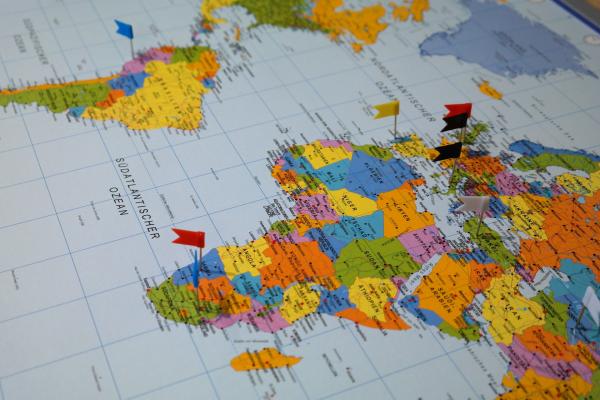
About the programme
The Graduate Programme in Geography prioritises the training of qualified professionals for research, teaching and the new demands of the labour market, encouraging students to produce and disclose geographic knowledge at different scientific events, exhibiting the methods and methodologies learned in the different approaches, with a focus on physical areas, the humanities and technological areas. As such, the Programme strives to provide wide-reaching scientific development and to incentivise training and critical knowledge of geographical science in the development of robust research and well-founded surveys on methods and paradigms to guide socio-spatial analyses, backed up by geotechnologies.
With reference to the Area of Concentration in Environmental Analysis and Territorial Dynamics, the research conducted in the Programme is split into two lines: Territorial Dynamics: Current Technical Systems and New Socio-Spatial Practices; and Geographic Information Systems, Analysis of the Natural Components of the Landscape and Changes Arising from Use and Occupation.
Goals
- To conduct research and present results on the history and epistemology of Geography;
- To understand territorial processes and phenomena arising from links between different scales (global, national, regional and local) and factors (economic, cultural, environmental and political);
- To further the understanding of the mediation of national territories ín the global/local relationship, including topics such as national sovereignty and the fragmentation of administrative political units;
- To seek out the new fundamentals in the region, the new roles of borders and technical networks, in addition to the new nexus of the constitution of place;
- To conduct studies on the Geography of Brazil aiming to highlight the regional differences and the process involving the integration of the Brazilian territory;
- To develop and use spatial analysis techniques, supported by Digital Cartography, Remote Sensing, Geographic Information System (GIS) and Global Navigation Satellite System (GNSS) technologies, among others, in the resolution of geographic problems and the use of the same in territorial, environmental, regional and urban planning and management;
- To expand knowledge on new approaches between geosystems and anthropic systems, contextualising them spatially in different scales of approach in the territory;
- To assess the study of the impacts arising from the use and occupation of land as a means of finding ways to rehabilitate, preserve and conserve the landscape, based on systemic spatial approach models, integrating society, nature and landscape resources;
- To expand knowledge of the inseparability of the elements comprising natural space and geographic space, looking for new ways in which to illustrate this relationship cartographically;
- To study and understand the teaching-learning processes of Education in Geography, its technologies, languages, as well as the educational and curricular policies that impact scholar geography.
Technical Support - Graduate Office
Cristina Aparecida Moraes (Secretary), Daniel de Jesus Capeleto
Commission of the Graduate Programme in Geography
Coordinator
Profª. Drª. Claudete de Castro Silva Vitte
Contact: cppgeogr [at] unicamp.br
Faculty Members
Main
Prof. Dr. Francisco Sérgio Bernardes Ladeira
Prof. Dr. Eduardo José Marandola
Deputy
Prof. Dr. Edson Luiz Bolfe
Prof. Dr. Kauê Lopes dos Santos
Student Members
Main
Sarah Aparecida Montrazio
Deputy
Samuel Francisco da Conceição da Silva
Admission
Calls, Editorials and Awards
Financing
No information about financing.




